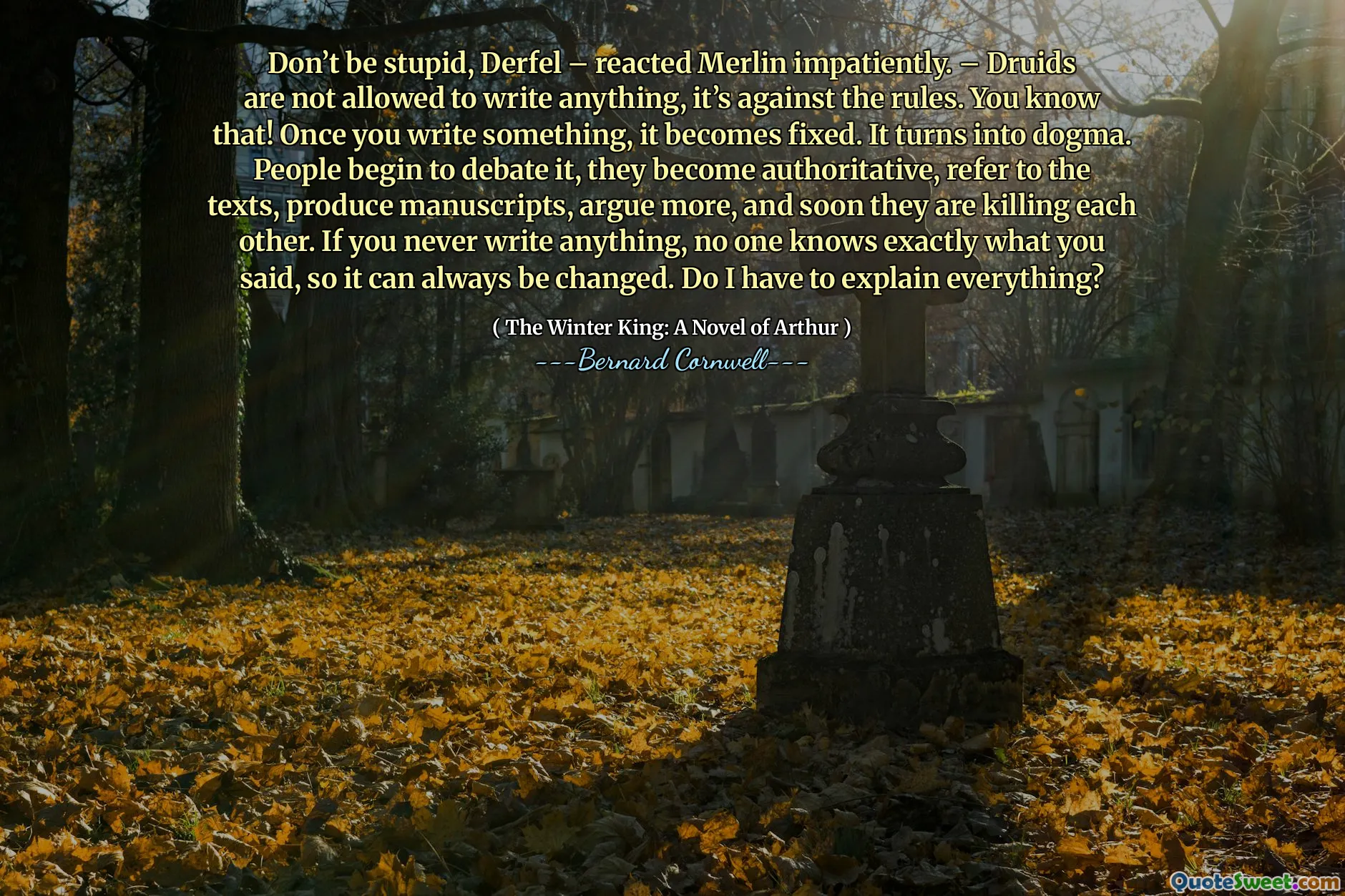
Don’t be stupid, Derfel – reacted Merlin impatiently. – Druids are not allowed to write anything, it’s against the rules. You know that! Once you write something, it becomes fixed. It turns into dogma. People begin to debate it, they become authoritative, refer to the texts, produce manuscripts, argue more, and soon they are killing each other. If you never write anything, no one knows exactly what you said, so it can always be changed. Do I have to explain everything?
[This quote highlights a profound understanding of the power of words and the inherent dangers of fixed doctrines. Merlin cautions about the permanence of written words, suggesting that writing can turn ideas into rigid truths—dogmas—that may stifle debate and critical thinking. The tension between oral tradition and written record is a recurring theme in history; when knowledge is fluid and interpretive, it encourages continuous discussion and adaptability. Conversely, when ideas are codified in texts, they risk becoming authorities that are difficult to challenge, leading to dogmatism, intolerance, and even violence. Merlin's wisdom here underscores a fundamental philosophical dilemma: the more we codify knowledge, the more we risk ossification of thought, reducing nuanced understanding to inflexible doctrines. He advocates for the equivocal, dynamic nature of spoken words, which can be perpetually contextualized, reinterpreted, and adapted. This perspective advocates for a cautious approach to recording knowledge, recognizing that human ideas are complex and best served by ongoing dialogue rather than rigid adherence to fixed texts. It resonates deeply in contexts where freedom of thought is essential, warning of the risks involved in authoritative scriptural or doctrinal systems. Essentially, Merlin’s statement champions openness and fluidity in knowledge, valuing discussion over dogma, highlighting a timeless truth about the power of language and the importance of intellectual flexibility in a constantly changing world.






